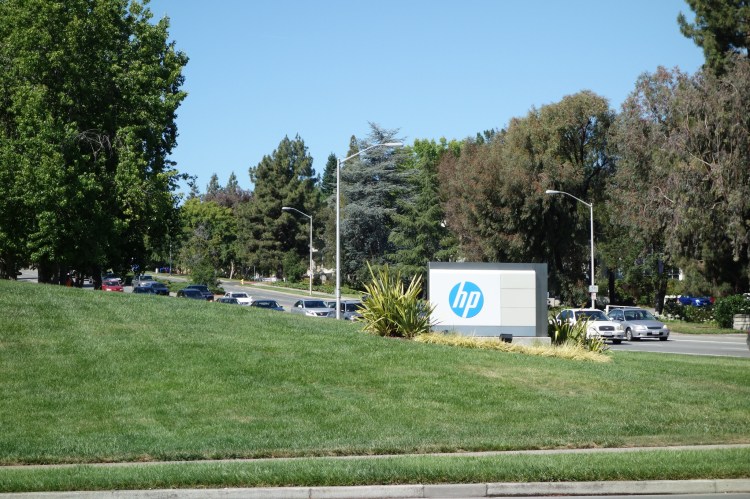While cloud computing has dominated technology news for quite some time, last week was truly seminal in the computer industry. Key players made a flurry of announcements that ratcheted up the competition to a whole new level.
There were major appointments: Brian Stevens, Red Hat’s former chief technology officer, joined Google as vice president of product management of the company’s cloud platforms unit. Bill Vass, an early supporter of OpenStack and Amazon Web Services (AWS) in the government, was named vice president of engineering at AWS.
Most interesting to me, however, was the news that HP had acquired Eucalyptus and that the company’s chief executive, Mårten Mickos, once a harsh critic of OpenStack, will lead HP’s cloud unit and report directly to HP chief executive Meg Whitman.
And I don’t think last week was just a blip. I think these announcements are just the first of many strategic moves that will dominate the cloud landscape over the next several months where I expect we will continue to see major funding announcements, acquisitions and key appointments take place. [Author’s note: After I submitted this story, it was announced that Cisco was acquiring Metacloud, an OpenStack installation and operation services company.]
We can’t look at these acquisitions — or any of these announcements — in a vacuum. There is a tectonic shift taking place in the way enterprises are building infrastructure, with enterprises big and small trying to figure out how to use the cloud to replicate the Google’s efficiencies.
That’s because efficiently building large-scale infrastructure is becoming increasingly critical for nearly every business that extracts value from better understanding all of our web logs, GPS location data, social media graphs, financial transactions, retail transactions, stock market transactions, electronic health records, genomic data, photographs, videos, satellite imagery, and, of course, the data from the sensors in our mobile phones, wrist bands, watches, televisions, cars, and so on. One thing is becomingly increasingly clear: Enterprise IT must either watch as their most strategic and critical applications are built on public clouds, or they must immediately invest in real, standards-based application programming interface-driven private clouds.
Amazon, Microsoft, and Google are all making big plays in the public cloud, each leveraging the strengths of their platforms. But other legacy vendors — especially those that made their fortunes selling hardware and software to the enterprise — are desperately trying to come up with a strategy. They have the most to lose, after all.
With $3 trillion of annual spending on operations, infrastructure, and software at stake, the question is, how does the industry evolve? While public clouds have dominated the headlines, the reality is that most enterprises have massive investments in on-premises infrastructure, and as such, hybrid-cloud environments will be the answer. I believe the key to cracking the code to accelerating this evolution to enterprise cloud adoption will be products that bridge the gap from the past to the present — from traditional expensive human-managed infrastructure to highly efficient software-controlled infrastructure, operated both on premises and in the vast and operationally efficient public-cloud data centers operated by Amazon, Microsoft, and Google.
And that’s where the Eucalyptus acquisition comes in. HP understands the enterprise. By acquiring a private-cloud company, HP is the first legacy hardware vendor to step off the fence and put a stake in the ground with a firm cloud strategy, giving the company a strong first-mover advantage. This acquisition is also a ringing endorsement that OpenStack is the foundation for the operating system of cloud computers. HP’s cloud vision for the enterprise also includes AWS compatibility, which, while unofficially supported by some OpenStack products, was supported by Amazon for Eucalyptus. By combining Mårten — a well respected open-source advocate and cloud thought leader — Amazon API support, and an agreement with Amazon, HP has devised a strong cloud strategy. Mårten will also make sure HP is a really successful partner in the OpenStack ecosystem.
In the next several months, I expect we will see a lot of changes and consolidation in the cloud landscape. Many cloud companies are now raising money to gear up for the fight for the enterprise — and what a battle it will be. With this acquisition, HP has signaled that it’s intent on being a key player in the enterprise for years to come.
Chris Kemp is the chief strategy officer of Nebula, a company Chris founded after serving for five years in various roles at NASA. Chris also co-founded the OpenStack project. As the Chief Technology Officer for IT at NASA, Chris was responsible for pioneering work in cloud computing, open source, and open government. Chris served on the Cloud Computing Executive Steering Committee, and chaired the Cloud Standards Working Group. Previously, he served as the CIO of NASA Ames Research Center in Silicon Valley where he forged partnerships with Google and Microsoft and helped create Google Moon, Google Mars, and Microsoft World Wide Telescope. He was responsible for NASA’s Nebula Cloud Computing Project and co-founded the OpenStack project.


